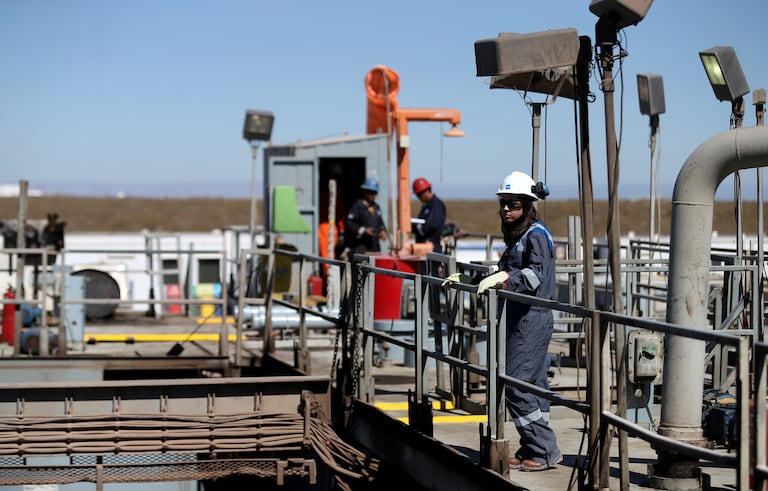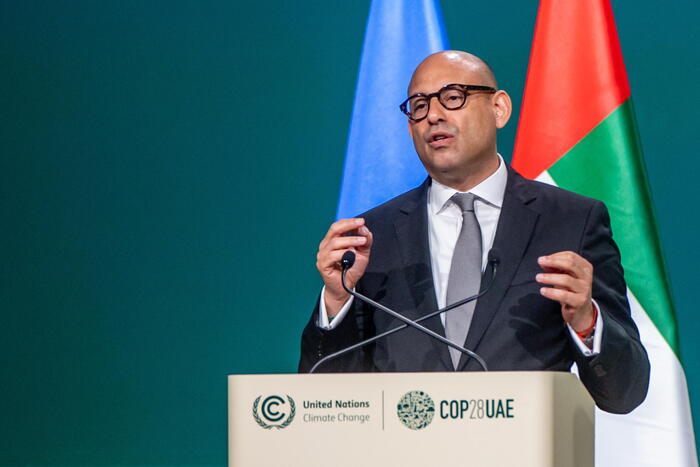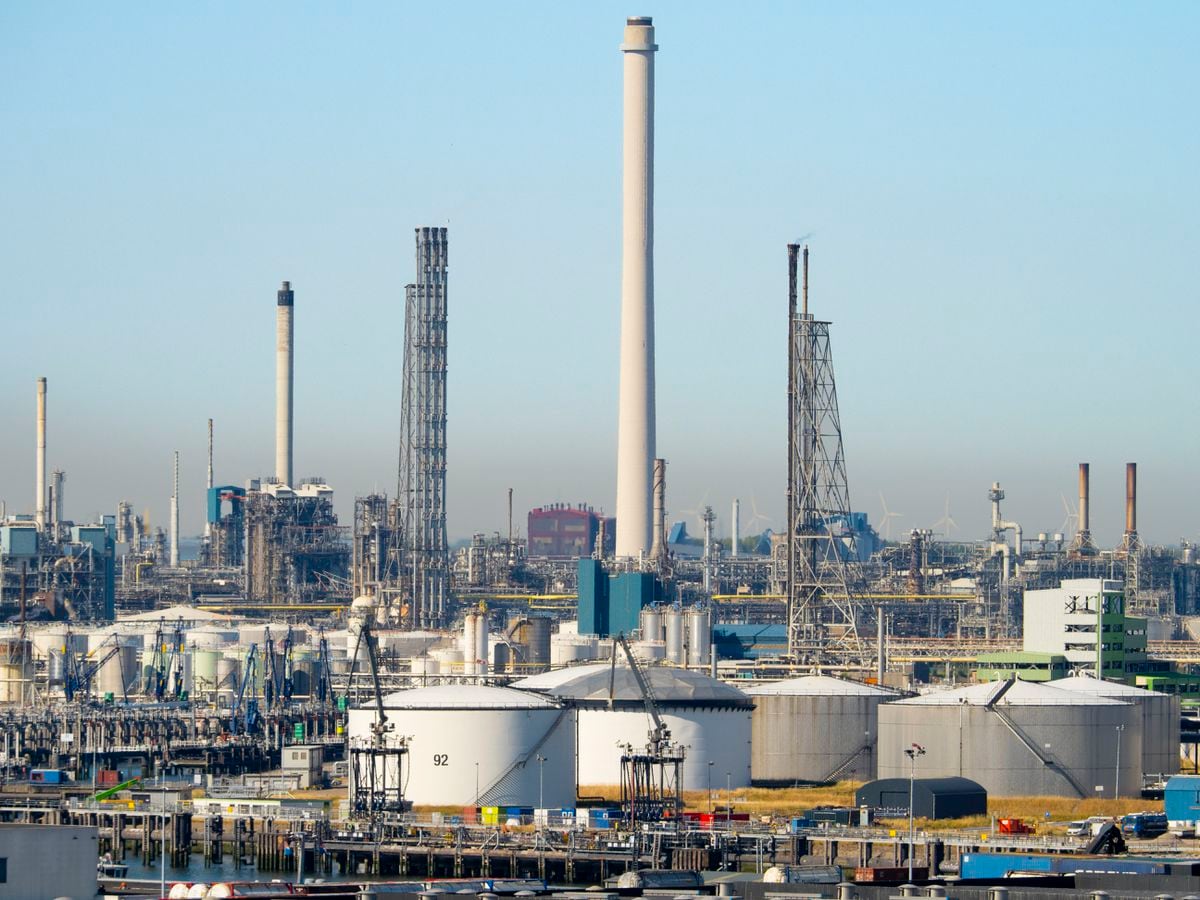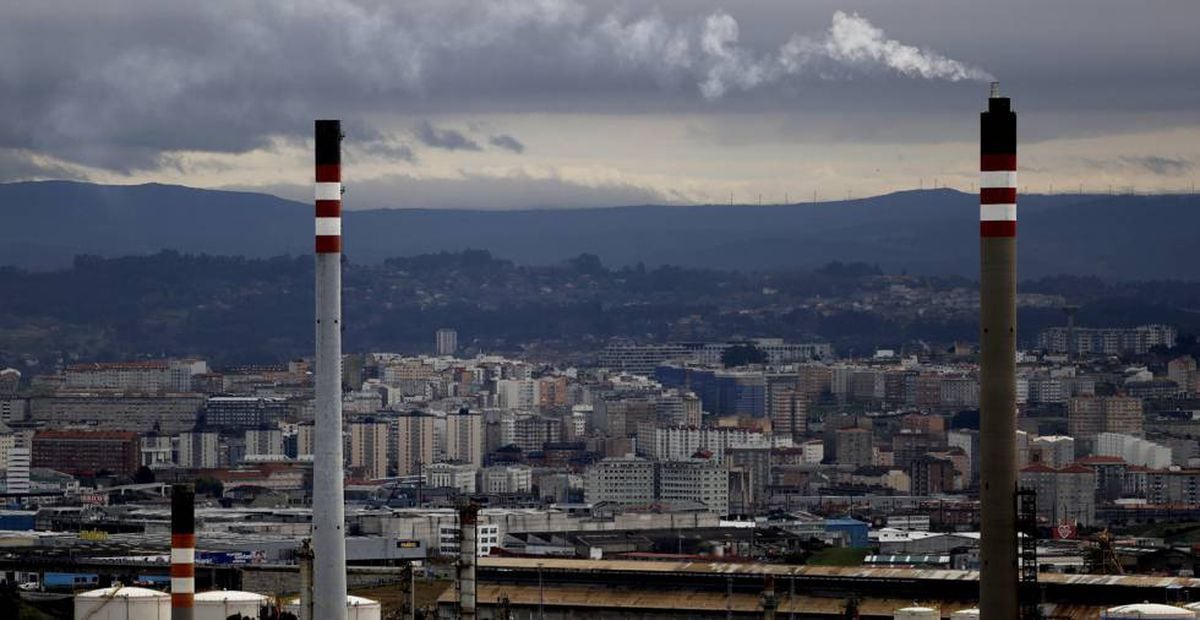Several operators of an oil extraction platform located in the Argentine field of Vaca Muerta, last year.AGUSTIN MARCARIAN / Reuters
On the fifth anniversary of the Paris Agreement, life remains the same in many areas.
The dozen of the world's most polluting projects in the planning phase or already under development continue to receive significant amounts of money in the form of investments or loans from the world's finance staff, according to a study presented this Thursday by a group of 18 environmental NGOs. under an enlightening heading:
Five years lost
.
These projects, which would consume three-quarters of the maximum carbon that the world should emit to have real options to reduce global warming.
Stopping its development is therefore key to achieving that goal.
The largest banks and investment firms on the planet have lent, according to the calculations of this coalition of organizations, up to 1.6 trillion dollars (1.3 trillion euros, more than Spanish GDP) between credits and guarantees since January 2016 , shortly before the international pact against climate change came into force.
And they have invested $ 1.1 trillion in bonds and stocks of the 133 companies behind development plans "that expand fossil fuels."
A score of entities, mostly investment and pension fund managers but also investment banks, account for almost half of the total invested: 535,000 million dollars.
Three names stand out above the rest, all of them American: BlackRock, Vanguard and State Street.
On the creditors' side, another twenty entities provided 949,000 million of the total of 1.6 trillion, with Citigroup, Bank of America and JPMorgan also leading the way.
"The financial sector has to quickly get its money out of the fossil fuel industry," urge the signatory organizations, including Friends of the Earth and Climate Risks Horizons.
"And the first step should be not to facilitate more coal, oil or gas expansion projects."
The dozen cases chosen in the report range from the development of Vaca Muerta (the largest oil field in Argentina and the world's second largest reserve of shale gas) to the multiplication of
fracking
wells
in Texas (United States) through the latest additions to the map of thermal plants that burn coal to generate electricity in China.
And some of the world's largest oil companies — Asian, European, Latin American and, above all, United States — participate in them: ExxonMobil, Chevron, Petrobras, Total, BP, Shell, Eni and Repsol, among others.
Despite the growing attempts to reconversion of these companies, which in recent years have set their sights on renewables and the juicy returns they promise, the study's signatories say that "fossil fuels are alive and well."
In the list of the 20 largest funders of these projects are practically all the big names in the US and Canadian financial sector (Morgan Stanley, Wells Fargo, Goldman Sachs and Royal Bank of Canada, in addition to the aforementioned Citigroup, Bank of America and JPMorgan ), a handful of Asians (Mitsubishi Financial, Mizuho, SMBC, Bank of China and the also Chinese ICBC) and the European banking staff (the British Barclays and HSBC; the French BNP Paribas, Société Générale and Crédit Agricole; the German Deutsche Bank; Swiss Credit Suisse; and Spanish Santander).
Two names appear on both the top 20 list of funders and the top investors: JPMorgan or Deutsche Bank.
The rest of the large investors in polluting projects are, for the most part, investment banks, and investment and pension funds with a common denominator: 80% are Americans.
There they are, in addition to the aforementioned BlackRock (the largest manager on the planet), Vanguard and State Street, Capital Group, Fidelity, T. Rowe Price, Wellington Management, Geode, Invesco, Dodge & Cox, Northern Trust, Bank of New York Mellon, Franklin Resources, TIAA and Dimensional Fund Advisors.
Outside the United States, the Norwegian public pension fund (the fifth by volume of money disbursed in polluting projects), the Swiss investment bank UBS, or the British firm Legal & General stand out.


/cloudfront-eu-central-1.images.arcpublishing.com/prisa/TMZ4PQHOJZ4TRSRZ2OO65Q4ANI.jpg)




